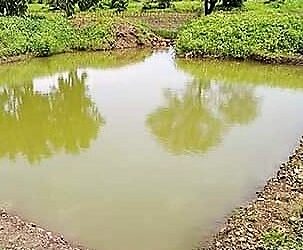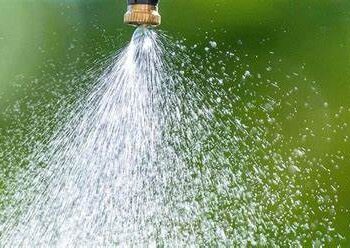MUMBAI: Water security in Yavatmal district could be at risk if steps are not taken to revive and renovate water harvesting and recharge structures according to a study by Institute for Sustainable Communities.
The report titled “Water Harvesting and Recharge Structures in Yavatmal District: A Status Check” examines the current status of the water harvesting and recharge structures and measures their effectiveness based on an analysis of the hydro-geology of the area.
Using various mapping tools, undertaking field visits and interaction with communities, the report has assessed the current state of the structures and their effectiveness in recharging or storing water.
Water bodies that have an area of more than 0.3 hectares have been mapped as part of the study. “The main aspect of the research was to ascertain whether the water harvesting and storage structures in Yavatmal district have been constructed in appropriate locations in order to be effective for groundwater recharge or surface storage.
A total of 686 structures comprising check dams (204 nos.), percolation tanks (211 nos.), ponds (175 nos.), water storage tanks, and reservoirs (96 nos.) were mapped across the district, with an indication of their location across recharge or discharge areas,” said Romit Sen, Associate Director – Water & Agriculture Program at ISC.
The findings of the research indicate that more than 40% of the check dams have been constructed in discharge areas. Considering that the main role of constructing check dams is to enhance groundwater recharge, their construction in discharge areas does not serve the purpose. Furthermore, the study highlights that more than 35% of the check dams, and 32% of the percolation tanks, are either damaged or encroached. Communities have pointed towards the poor operation and maintenance of the structures as a major reason for the current state.
Therefore, it is recommended that a comprehensive plan for repair, renovation and reconstruction of the water harvesting and recharge structures is developed for the district to ensure long term availability and sustainability of water resources. This should include a plan to ensure their maintenance, involving the engagement of the Gram Panchayat and the village communities. Emphasis should be given to repair and renovate the check dams and percolation tanks lying in the recharge areas and the ponds in the discharge areas for ensuring long term water security for Yavatmal district.
“The analysis and findings will help prioritize the revival efforts of the various water harvesting and storage structures in Yavatmal,” said Vivek P Adhia, Country Director-India, Institute for Sustainable Communities. “It will help decision-makers plan for augmenting water resources in the district”, added Vivek, emphasizing the need for community participation and creating mechanisms for effective operation and maintenance.
The Institute for Sustainable Communities (ISC) is a global non-profit organization with a 30-year track record of supporting industry, cities, and communities to plan and implement environmental, economic, and social improvements. Since 1991, ISC has led more than 115 transformative community-driven sustainability projects in 30 countries including the United States, China, India, and Bangladesh.
ISC helps unleash the existing power of local people and institutions to address immediate social, economic, and environmental challenges and opportunities – all while building those on-the-ground solutions into national and international best practices and policy. At the heart of the organization’s approach is results-focused, authentic, and pragmatic engagement with all stakeholders, which unearths locally-driven and equitable solutions to the biggest challenge we face – global climate change.






















